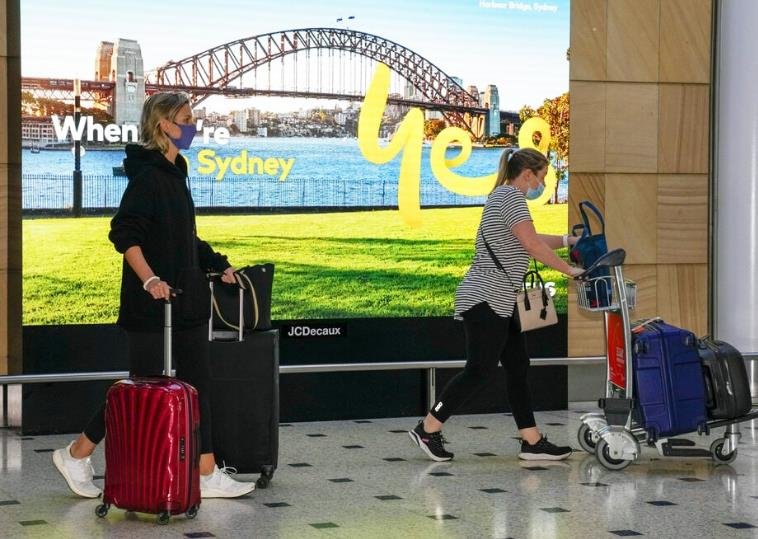Australians are redefining success, prioritizing a fulfilling life over traditional markers like work and homeownership amid the cost-of-living crisis. In the midst of rising living costs, Australians are shifting their dreams. The latest 2024 Muval Index highlights a new aspiration: prioritizing a better lifestyle over financial and professional pressures.
Changing Priorities: Lifestyle Takes Center Stage
The 2024 Muval Index reveals that 41% of Australians plan to move within the next year to enhance their lifestyle. This marks a significant shift from previous years, where cost-of-living concerns dominated relocation decisions. It’s a clear sign that many are seeking more than just financial stability—they want fulfillment and balance.
James Morrell, CEO of Muval, emphasizes this trend: “The data tells us that Australians have had enough of financial pressures and while cost of living is still impacting our lives, we are no longer fixated on being a slave to a mortgage we can’t service.” His insights reflect a growing desire to break free from traditional constraints and pursue a more meaningful life.

Holiday Dreams on the Rise
Reflecting this lifestyle shift, 56% of Australians are planning an overseas holiday within the next year. This is a substantial increase compared to other aspirations: 24% are looking to start a new job, 18% intend to move, and only 7% are planning to have a baby. Holidays have become the top priority, indicating a collective yearning for relaxation and adventure.
It’s not just about escaping the daily grind; it’s about investing in personal well-being and experiences. Australians are valuing time off and the chance to explore the world, which contributes to their overall happiness and life satisfaction.
Key Findings from the 2024 Muval Index
The 2024 Muval Index provides a comprehensive look into Australians’ evolving motivations and behaviors:
- Top Moving Motivation: 41% plan to move for a better life, compared to 29% for cost of living and 11% for work.
- Past Year Trends: Last year, 36% moved primarily due to cost-of-living concerns.
- Home Upgrades on the Rise: Home upgrades have surged to 30% in 2024 from 16% in 2023.
- Decline in Work-Related Moves: Only 11% moved for work this year, down from 26% in 2023.
- Intention to Move: Nearly one in five Australians (18%) plans to relocate within the next year, while the majority prioritize holidays (56%).
These statistics highlight a broader trend: Australians are increasingly valuing quality of life over traditional economic motivations.
Migration Trends: Melbourne and Brisbane Lead the Way
Despite a general downturn in the removalist industry, interstate migration is thriving, with Melbourne and Brisbane emerging as top destinations. Notably, Brisbane has surpassed Perth as the city with the highest net migration rate, accounting for 26% of major metro moving inquiries in September.
Migration Highlights:
| Metric | 2024 Data |
|---|---|
| Top Moving Destination | Brisbane |
| Previous Top Destination | Perth |
| Net Migration Rate in Brisbane | 26% of major metro moves |
| Biggest Winner for Net Migration | Australian Capital Territory |
| Largest Resident Loss | Brisbane Inner City |
These migration patterns indicate a shift towards cities that offer better lifestyle opportunities, climate, and amenities, aligning with the new Great Australian Dream.
Home Upgrades: Investing in Comfort and Quality
Home upgrades have seen a dramatic increase, jumping from 16% in 2023 to 30% in 2024. Australians are investing more in their homes, seeking comfort and quality over sheer space. This trend reflects a desire to create personal sanctuaries that support their new lifestyle priorities.
“People are looking to make their homes more livable and enjoyable,” Morrell notes. “Whether it’s renovating for better functionality or enhancing aesthetic appeal, the focus is on creating spaces that contribute to a happier, more fulfilling life.”
Decline in Work-Related Moves: Less Focus on Career Mobility
Interestingly, work-related moves have decreased significantly, from 26% in 2023 to 11% in 2024. This decline suggests that career mobility is no longer the primary driver for relocation. Instead, personal well-being and lifestyle enhancements are taking precedence.
This shift might also be influenced by the evolving nature of work, with more Australians embracing remote work and seeking locations that offer a better quality of life rather than relocating for job opportunities.
The Impact of the Cost-of-Living Crisis
The ongoing cost-of-living crisis has undeniably influenced these trends. Rising expenses have forced many Australians to reassess their priorities and seek ways to improve their overall quality of life. By prioritizing lifestyle improvements over financial pressures, individuals are finding new paths to happiness and fulfillment.
“After a record run of interest rate rises and inflation, it seems Australians have reached a tipping point,” Morrell adds. This tipping point has catalyzed a cultural shift towards valuing experiences and well-being over traditional economic goals.
Future Outlook: What Lies Ahead for Australians
Looking forward, the 2024 Muval Index suggests that the trend of prioritizing lifestyle over financial and professional pressures will continue. As Australians seek to build more fulfilling lives, the focus will likely remain on personal well-being, quality time, and meaningful experiences.
This shift could have broader implications for various sectors, including real estate, travel, and wellness industries, as they adapt to meet the evolving needs and desires of Australians.
Community and Support: Building a Supportive Network
Alongside individual efforts to enhance their lifestyles, Australians are also looking to build supportive communities. The desire for a better life often includes fostering connections and creating environments where people can thrive together.
“We want to create a space where women feel empowered to share their journeys and support one another,” Bohl explained. “It’s not just about the tools we provide, but also about fostering a community of like-minded individuals.”
This emphasis on community support aligns with the broader trend of seeking fulfillment through meaningful relationships and collective well-being.
















